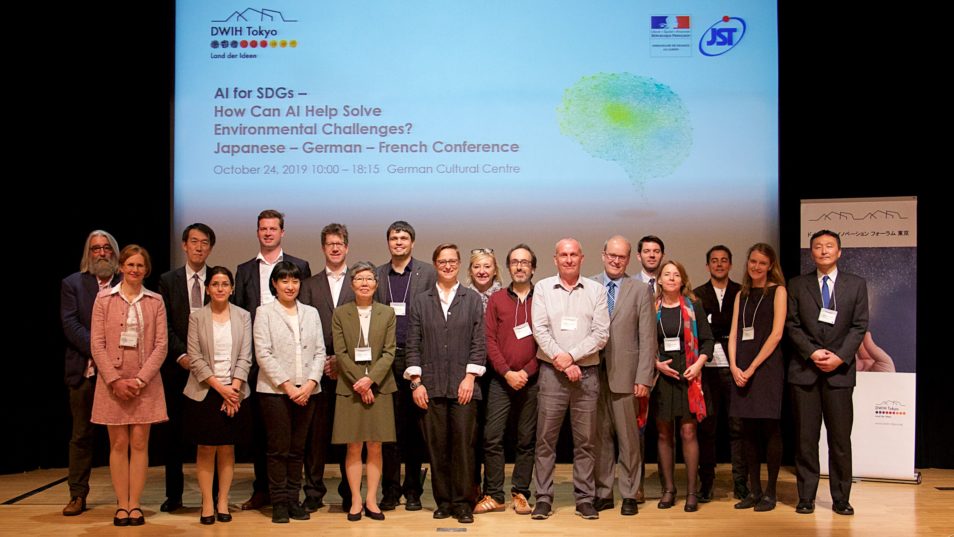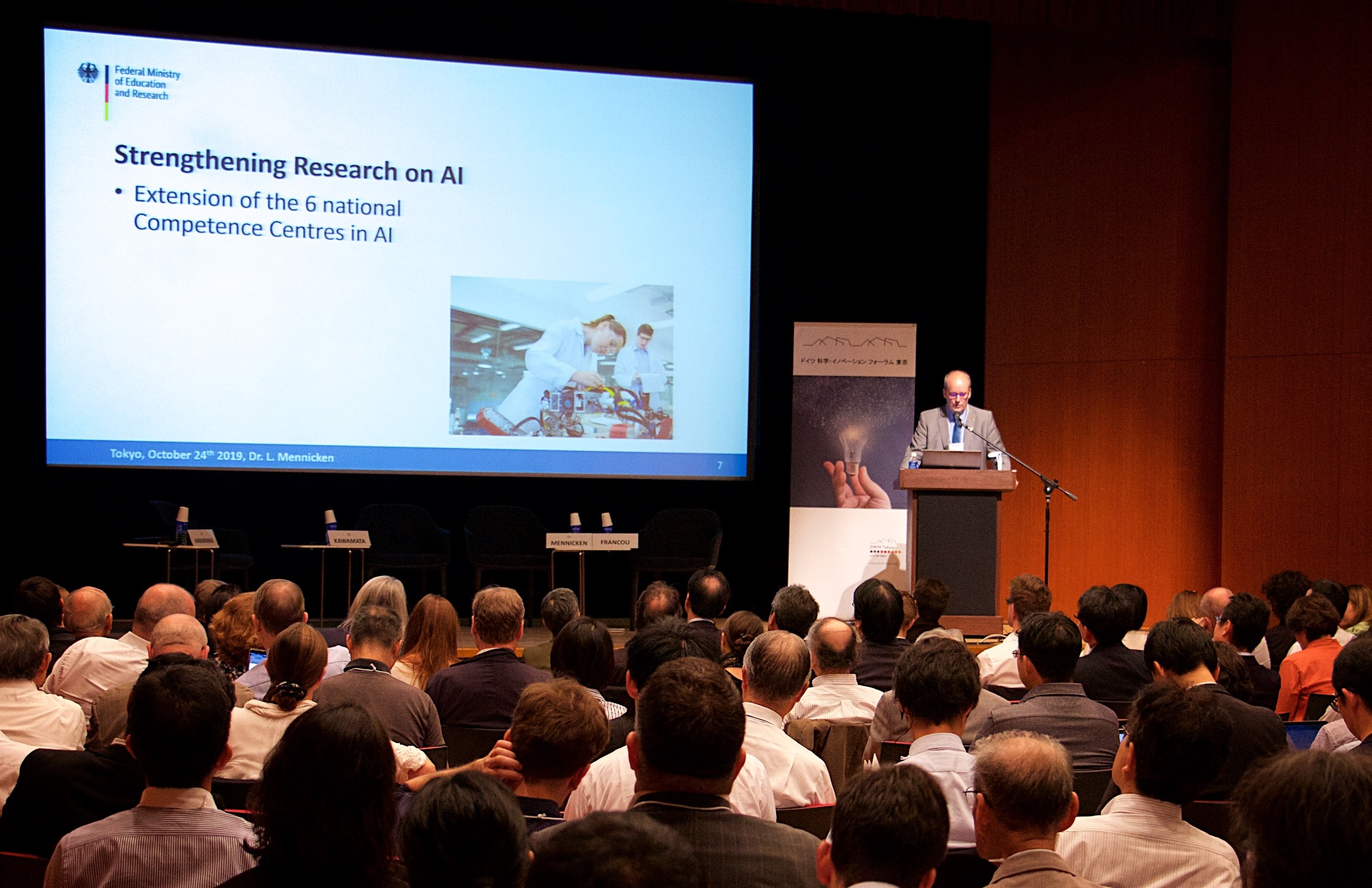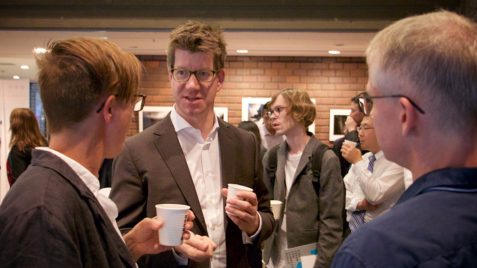AI for SDGs—How Can Artificial Intelligence Help Solve Environmental Challenges? Japanese-German-French Conference
 © DWIH Tokyo
© DWIH Tokyo
On 24 October, the German Centre for Research and Innovation Tokyo (DWIH Tokyo) together with the Embassy of France in Japan and the Japanese Science and Technology Agency (JST), invited 16 speakers from Germany, France and Japan to Tokyo to discuss how artificial intelligence can help solve environmental challenges. Over 150 participants attended the day-long event and many more followed via the live stream.
The discussants approached the topic from four different angles. In the first session, government representatives and thinkers with a background in policymaking examined how ecological issues and the digital transition are intertwined in each country’s national policy agenda. The speakers emphasized the great potential of AI to contribute to more sustainable societies, especially in the energy and mobility sectors. However, they also pointed out that a change in attitudes among the population will be necessary to realize this potential.
 The second session discussed AI applications in agriculture and land use. Agriculture is among the greatest contributors to global warming and demand will increase further as the world’s population grows. AI applications like robot tractors or drones for checking crop growth could raise productivity and labour efficiency significantly, while water management would reduce greenhouse gas emissions. But the question is how to bring these new technologies to the farmer? It was emphasized that achieving this will require the ecological benefits to be economically attractive, which until now has not always been the case.
The second session discussed AI applications in agriculture and land use. Agriculture is among the greatest contributors to global warming and demand will increase further as the world’s population grows. AI applications like robot tractors or drones for checking crop growth could raise productivity and labour efficiency significantly, while water management would reduce greenhouse gas emissions. But the question is how to bring these new technologies to the farmer? It was emphasized that achieving this will require the ecological benefits to be economically attractive, which until now has not always been the case.
The third session brought artificial intelligence from the rural to urban areas, under the topic of AI applications in Smart Cities. Thanks to AI, connected, autonomous, shared and electric (CASE) mobility could soon become reality and people could use applications to compare the costs of different routes—for example, with a self-driving car-share service. AI could also be used in “thinking buildings” that look for ways to reduce energy consumption on their own. However, the innovation systems building the frameworks for Smart Cities differ widely between countries. This is also reflected in the question of who owns the massive amounts of data processed in a smart city: the private sector, the government, or the citizen? It was pointed out that Japan and Europe share similar stances on data privacy, which could provide a solid foundation for further collaboration.
The last session introduced examples of environmental AI applications already in use, e.g. a Virtual Power Plant (VPP) demonstration project conducted collaboratively by a German and a Japanese company, AI usage for climate service products, AI for investigating the impact of climate change on ocean resources and machine learning in the context of environmental hazard monitoring. Throughout the conference, the importance of international and intersectional exchange on the questions of AI and Climate Change became clear. Both transitions—the digital and the ecological—will take place on a global level and concern almost all sectors of society.
 The conference was a follow-up to the First Japanese-German-French DWIH Symposium on AI (November 2018), during which participants issued a joint statement on a shared human-centred approach to AI. In December, DWIH Tokyo will hold a second follow-up event, on AI and Health Care. The results of both follow-up events will be raised for further discussion next year at the Second Japanese-German-French Symposium on Artificial Intelligence.
The conference was a follow-up to the First Japanese-German-French DWIH Symposium on AI (November 2018), during which participants issued a joint statement on a shared human-centred approach to AI. In December, DWIH Tokyo will hold a second follow-up event, on AI and Health Care. The results of both follow-up events will be raised for further discussion next year at the Second Japanese-German-French Symposium on Artificial Intelligence.
We would like to express our appreciation to all contributors making this trilateral conference possible: our co-organizers, the Embassy of France in Japan and the Japanese Science and Technology Agency (JST), and our supporters, the Institute for Future Initiatives (University of Tokyo), the Ministry of the Environment of Japan and the Society for the Promotion of Science (JSPS), as well as the official DWIH Tokyo partners from Germany.
Register for our Newsletter!
The DWIH Tokyo Newsletter provides timely information on German-Japanese funding programs, event invitations and news from research and innovation. Sign up now!
